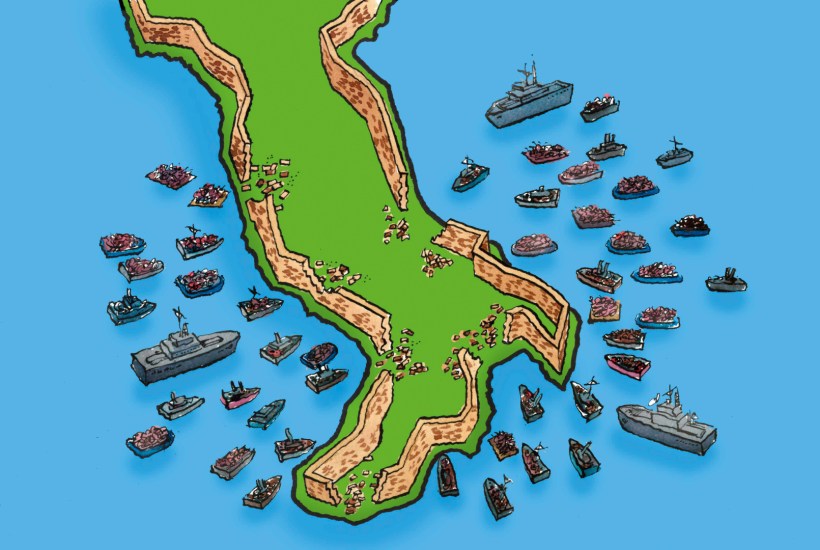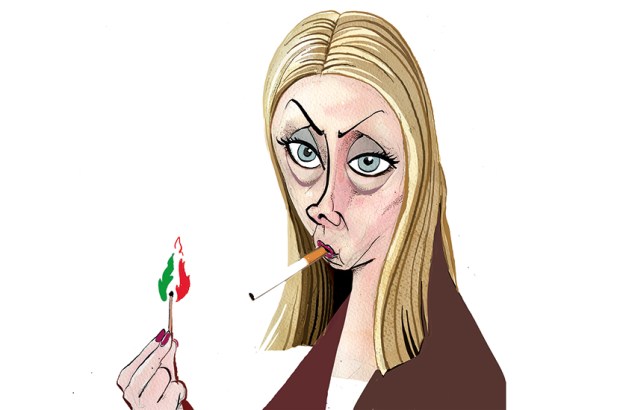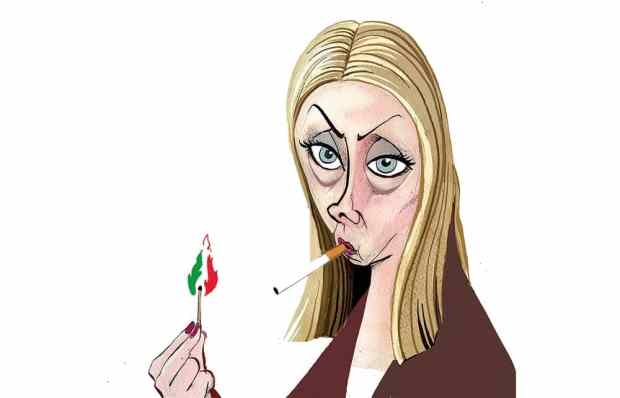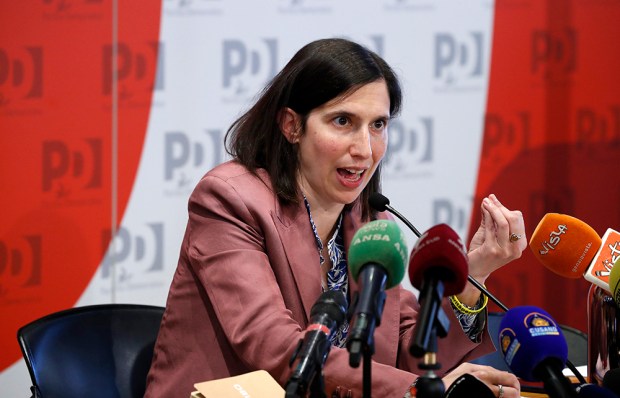Ravenna, Italy
Whatever Rishi Sunak does to ‘stop the boats’, the fight to prevent illegal immigration to Britain and Europe will not be won or lost in the English Channel. It will be decided in the sea between Italy and Africa.
At a recent EU summit in Brussels, Giorgia Meloni, Italy’s new right-wing Prime Minister, warned that if the crisis-torn dictatorship of Kais Saied in Tunisia falls, then there will be ‘an invasion’ of Italy this year of ‘up to 900,000 migrants’. Tunisia has become a new major departure point for migrants coming to Europe. An Italian secret service report, meanwhile, warns that another ‘685,000 migrants’ are ready to cross to Italy from Libya.
Already in 2023, four times as many migrants have arrived in Italy from north Africa compared with the same period last year – increasingly from Tunisia. Italy’s record year was 2016, when 181,436 came across. Yet in the last ten days of March, more than 7,000 migrants have made the journey – and we are nowhere near the peak summer period. Even at this rate, a total 475,000 will arrive this year in Italy by sea. By comparison, Britain has so far this year taken in more than 4,000 who arrived from France by small boat.
This summer, in terms of numbers and political consequences, could dwarf that of 2015 when the then German chancellor Angela Merkel so disastrously allowed a million migrants into Germany from the Middle East. That led, among other things, to the EU being forced to pay Turkey a £5.2 -billion bribe to stop migrant departures.
Meloni insists that the EU should do something similar with Tunisia. Her government has been pressing the IMF to release a £1.5 billion loan it agreed in October to Tunisia, which is on the brink of defaulting on its debt repayments. The loan is conditional on commitment to a series of reforms.
‘Perhaps not everyone is aware of the risks that exist regarding the Tunisian situation and the necessity to sustain stability in a nation that has serious financial problems,’ says Meloni. ‘If we don’t confront them, we risk unleashing a migratory wave objectively without precedent.’
The Italians elected Meloni Prime Minister at the head of a right-wing coalition in September on the promise that she would stop illegal immigration. She has a rock–solid majority and is Italy’s first elected prime minister since 2011 – elected in the sense that none of the previous six holders of the office won while the head of a party or coalition. Four were not even elected parliamentarians when appointed.
But the number of arrivals is going up rather than down on her watch – exponentially. She is failing. This is partly because everything she does is howled down as ‘fascist’. But it is mainly because Italy, acting alone, cannot solve the escalating migrant crisis in the Mediterranean. Her battle cry is: only Europe, not Italy, can defend Europe’s Mediterranean border. She is determined to persuade European leaders to back her plans to tackle the crisis in the Mediterranean. In Brussels last month, she met with France’s President Emmanuel Macron to discuss ‘opportunities for cooperation’ ahead of the next EU summit in June.
Above all, Meloni is demanding an EU mission to stop the boats departing, and to send back migrants who are not refugees – i.e. the overwhelming majority. Last year, only a fifth of asylum claimants were deported from the EU to their country of origin.
At the same time – even though branded by most media outlets as the most right-wing Italian prime minister since the fascist dictator Benito Mussolini – she wants to establish a safe and legal annual migrant quota system. She has also launched an ambitious ‘Piano Mattei’ plan – named after Enrico Mattei, a post-war Italian entrepreneur who worked closely with Africa – to diminish migration flows by assisting African countries economically.
Meloni’s point is that her goals are humanitarian. In a retort to those who accuse her of fascistic indifference to the fate of migrant boat people, Meloni told the Senate on the eve of the EU summit that since she had become prime minister, Italy’s coastguard and finance police have saved ‘36,500 people at sea’.
Sunak’s Illegal Migration Bill targets the migrants and proposes to deport them within 28 days. By contrast, Meloni has decided to target those who operate the boats. Last month, she announced a decree law that will jail traffickers for up to 16 years – or 30 if they cause the death of any migrants.
Successive Italian governments, including left-wing ones, have equipped the Libyan coastguard to turn back migrant boats to Libya. But this only stops about a third. Britain, meanwhile, pays France to perform a similar role with similarly poor results.
Sunak’s Rwanda scheme is meant to act as a deterrent to the many migrants who bet on Britain being a soft-touch for arrivals. Meloni’s thinking is that a far better deterrent is to warn the people-traffickers they will spend much of their life in prison if caught.
Meloni has taken intense daily flak for her approach. Her critics say, among many other things, that the traffickers are doing a vital job by bringing desperate people to safety, just like the charity rescue vessels. Yet most Italians back her on this issue. Popular support for her party, Brothers of Italy, has increased by five percentage points since the election. She is one of the most popular political leaders in the world.
But Meloni’s task is a daunting one. Over the past decade, 2.4 million migrants have arrived illegally in Europe by sea. Since 2016, when the EU paid off Turkey, most of these have been via Italy.
If there is ever to be any solution to the crisis, then Europe must defend Italy. Will other European leaders help Meloni, even though many regard her as a vulgar ‘populist’, aka ‘the heir to Mussolini’? Or will they let her fail and have to keep dealing with the consequences of unprecedented levels of illegal immigration? It’s a question Sunak might wish to ponder.
Got something to add? Join the discussion and comment below.
Get 10 issues for just $10
Subscribe to The Spectator Australia today for the next 10 magazine issues, plus full online access, for just $10.
You might disagree with half of it, but you’ll enjoy reading all of it. Try your first month for free, then just $2 a week for the remainder of your first year.














Comments
Don't miss out
Join the conversation with other Spectator Australia readers. Subscribe to leave a comment.
SUBSCRIBEAlready a subscriber? Log in